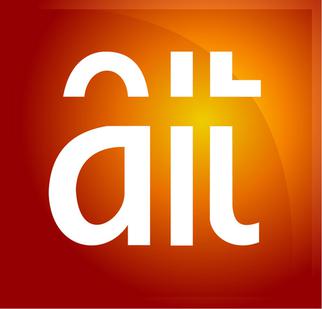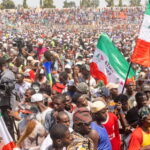By Godwin Sunday Ogboji
It is imperative to look closely at three keys words used in our topic for discussion, and these words are Transparency, Management and Loan.
Transparency gotten from the word Transparent means amongst others definitions “Easy to see through or understand”. Management on the other hand is defined as “the skilful use of means to accomplish a purpose”. while Loan is defined as “something lent, especially a sum of money lent at interest”.
Flowing from the definition of loan above, it follows that loans obtained has inherent interest which most often come along with what are termed conditionalities attached to the loan and these conditionalities most often are detrimental to the borrowing countries as seen in many African countries that have received loans from foreign countries.
Loans by virtue of Section 80 (1) of the 1999 Constitution of the Federal Republic of Nigeria (As Amended) are part of the revenues accruable to the Federal and State Governments, as it is provided therein that “All revenues or other moneys raised or received by the Federation (not being revenues or other moneys payable under this Constitution or any Act of the National Assembly into any other public fund of the Federation established for a specific purpose) shall be paid into and form one Consolidated Revenue fund of the Federation”.
To ensure that the processes of obtaining loans in Nigeria are transparent and that the management of such loans are deployed for its purpose, the 1999 Constitution of the Federal Republic of Nigeria (As Amended) further empowers the National Assembly, thus as it provides in Section 80 (3) and (4) as follows,
Section 80 (3)- “No money shall be withdrawn from any public fund of the Federation, other than the Consolidated Revenue Fund of the Federation, unless the issue of those moneys has been authorised by an Act of the National Assembly”.
Section 80 (4)- “No moneys shall be withdrawn from the Consolidated Revenue Fund or any other public fund of the Federation, except in the manner prescribe by the National Assembly”.
In view of the fact that several conditionalities are attached to loans apart from the interest accruable on them, it is imperative that care should be taken that loans obtained by the Nigerian Government does not contain conditionalities that will have dire consequences on Nigerians by putting their futures at risk of losing sovereign assets and essential infrastructures.
And to ensure that loans obtained by the Federal and State Governments are not wasted or corruptly embezzled, the 1999 Constitution of the Federal Republic of Nigeria (As Amended) again empowered the National Assembly by providing in Section 88 (1)- that “Subject to the provision of this Constitution, each House of the National Assembly shall have power by resolution published in its journal or in the Official Gazette of the Government of the Federation to direct or cause to be directed an investigation into-
(b)- the conduct of affairs of a person, authority, ministry or government department charged, or intended to be charged, with the duty of or responsibility for-
(ii) disbursing or administering moneys appropriated or to be appropriated by the National Assembly”.
It is our submission that to ensure transparency and good management of loans obtained by the Government, the generality of Nigerians should always pressurize the National Assembly to at all time ensure that when request for loans are made by the Executive Arm of Government, the purpose of the loan should be scrutinized and to be more particularly scrutinized should be the terms and conditionalities attached to the loans to ensure that obnoxious clauses and conditions are not inserted in these loans and commercial agreements that will bring dire consequences for the generality of Nigerian by having their futured mortgaged.
This is because if proper scrutiny of these loans agreements are not made by the National Assembly as enjoined by the 1999 Constitution, tales of what befell other Africans Countries that defaulted in the repayments of these types of loans that led to their National assets being confiscated and taken over by the lending countries and institutions may also befall Nigeria.
Nigeria is not at all immune from such tales that befell other countries as the revelation that emanated from the truncated public hearing of the House of Representative Committee on Treaties, Protocols and Agreements of the present National Assembly which was on 12th May, 2020 mandated by the House in plenary session to investigate external loans and commercial agreement between Nigeria and other countries especially China where all manners of loans are sought form was very scary.
It was reported in the Punch Newspaper of Friday August 21, 2020 on page 2 that “… the Federal Government of Nigeria on Monday admitted the loan agreement with China contains sovereignty clause, which gives the Asian country the permission to seize a facility if Nigeria defaults in the payments of the loan”.
It is imperative that Nigerian and members of the National Assembly should also be alert to ensure transparency in any negotiation for loans by Nigerian Governments to avoid ambiguous and dangerous clauses in the eventual loans agreements to avoid catastrophic consequences as it was reported by Punch Newspaper on the same 21st August, 2020 that the Chairman of the House Committee on Treaties, Protocols and Agreements said that “The loan agreement on Nigeria National Information and Communication Technology Infrastructure Backbone, Phase II Project between the Government of Nigeria and the Export-Import Bank of China dated September 5, 2018, put the country in jeopardy in the event of a default.
The Chairman, it was further reported to have said in respect of the same loan mentioned above that “Article 8 (1) of the agreement states that “the borrower hereby irrevocably waives any immunity on the grounds of sovereign or otherwise for itself or its properties in connection with any arbitration proceedings pursuant thereto, except for the military assets and diplomatic assets”.
On 17th August, 2020 at the resumed hearing of the House Committee on Treaties, Protocols and Agreements, the Chairman announced to the whole world that the committee observed that Government officials signed empty pages of loan agreements repayment schedule and other key documents required for the loan agreement to become effective.
The revelations from the House Committee on Treaties, Protocols and Agreements clearly demonstrates the need for prudent management of loan facilities obtained from foreign countries as any default in repaying these loans will have dire consequences for Nigeria and its people.
Nigeria should urge politicians aspiring for political offices as we are witnessing now to undertake that where it becomes imperative to solicit and negotiate for loans on behalf of Nigerians, party politics should be down played and national interest should be of utmost consideration.
The above is being suggested in view of the fact that surprisingly, instead of the leadership of the House of Representative to support its Committee on Treaties, Protocols and Agreements in its investigative activities in respect of external loans as mandated by the House in session, the leadership obviously because of partisan interest truncated the activity of the Committee by abruptly indefinitely suspending the work of the Committee on 19th August, 2020 through the Leader of the House Alhassan Ado-Doduwa, and till date the Committee have not been reconvened to conclude its great work on behalf of Nigerians.
Nigerians should not this fight for transparency and good management of loans obtained from foreign countries to politicians alone, they should also be in the forefront demanding for transparency in the negotiation of the terms of such loans agreements and the prudent management by demanding for details of the implementation of such loan from their primary beneficiaries as Nigerians are empowered by the provision of Section 39 (1) of the 1999 Constitution, as it is provided therein that “Every person shall be entitled to freedom of expression, including freedom to hold opinions and to receive and impart ideas and information without interference”
We are happy to state that it is on the basis of the provision of Section 39 (1) of the 1999 Constitution that the NGO that I am the Chancellor is challenging the suspension by the leadership of the House of Representative of the work of the House Committee on Treaties, Protocols and Agreements investigating external loans and commercial agreements, and urging the Court to order the leadership to reconvey the committee for it to conclude its work and avail Nigerians with the outcome of their investigation.
The point must be made that to ensure transparency in the management of foreign loans, the National Assembly must be up and doing by making sure they insisted on perusing the details of every loan agreement sought to be obtained by the Nigerian Government to minimise the danger of signing off our national sovereignty, and more particularly to ensure that partisan politics should be avoided.
The citizens also can make use of the provisions of Section 39 (1) of the 1999 Constitution to insist on their fundamental right to receive information from applying Government about the details of loans applied for to ensure transparency and eventual good management of such loan.
We believe that if the National Assembly judiciously use the powers bestowed on it by Section 81 of the 1999 Constitution and the citizens utilize their right as enshrined in Section 39 (1) of the 1999 Constitution of the Federal Republic of Nigeria (As Amended) we can ensure transparent management of foreign loans in Nigeria.
Thank you all for your attention.
*Ogboji, Esq. presented this paper at the AIT Focus Nigeria Discussion on Policy Options for The Next Administration in Nigeria



